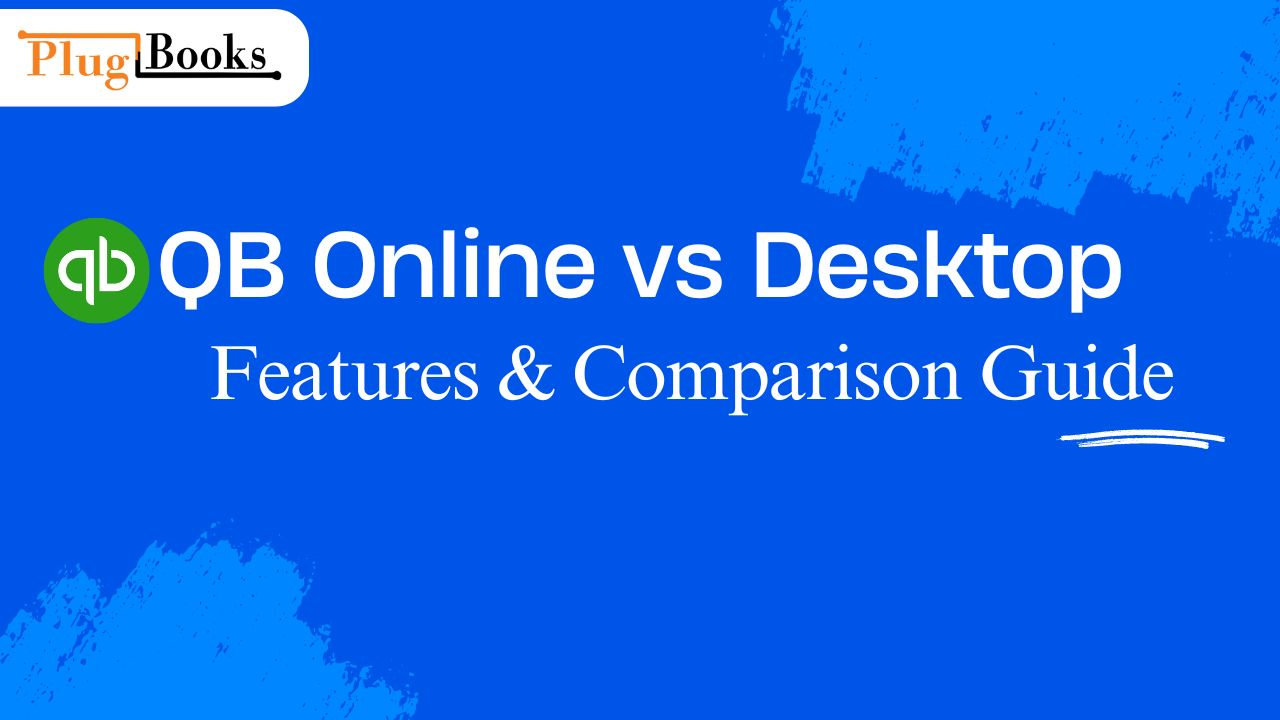Choosing the right accounting software is essential for efficient financial management. QB Online vs Desktop are popular options, each with unique features tailored to different needs. Here’s a comparison to help you decide which version best suits your business.
1. Accessibility and Convenience
QB Online is a cloud-based solution, providing access from any internet-connected device, making it ideal for businesses with remote teams or owners on the go. QuickBooks Desktop, installed on a specific device, offers more control over data security but limits accessibility.
Verdict: QB Online offers flexibility, while QuickBooks Desktop is suitable for in-house operations with tighter data control.
2. Feature Comparison
- QB Online includes core accounting features, such as invoicing, expense tracking, and bank reconciliation, plus integration with over 750 business tools.
- QuickBooks Desktop offers advanced tools, particularly in the Enterprise version, with options like job costing, inventory management, and industry-specific reports, ideal for larger businesses with complex needs.

Verdict: QB Online is versatile and scalable, while QuickBooks Desktop suits detailed financial management.
3. Pricing Models
- QB Online operates on a monthly subscription model, ensuring users automatically receive the latest updates.
- QuickBooks Desktop also uses a subscription model, though prices vary based on the version (Pro, Premier, Enterprise), and updates require periodic reinstallation.
Verdict: QuickBooks Online provides predictable monthly costs, while QuickBooks Desktop involves more periodic costs for advanced versions.

4. Ease of Use and Collaboration
QB Online allows multiple users to work together in real-time, ideal for teams needing synchronized access. QuickBooks Desktop supports fewer simultaneous users and limits collaboration, but it provides robust offline functionality.
Verdict: QuickBooks Online is best for collaborative work, while QuickBooks Desktop is suited for small teams or individual use.
5. Data Security and Backup
QuickBooks Online offers automatic cloud backups for secure, effortless data storage. QuickBooks Desktop gives users full control over data but requires manual or separate backup solutions, ideal for businesses that prefer offline storage.
Verdict: QB Online has built-in, automatic backups, while QuickBooks Desktop allows local control but adds backup responsibilities.
Integrate with PlugBooks.io for More Efficiency
If QB Online is your choice, PlugBooks.io can take your accounting management further by connecting Quick books Online with Amazon and eBay. PlugBooks.io automatically handles invoicing and Cost of Goods Sold (COGS), saving you time and ensuring accurate financial records, so you can focus on growing your business.
Conclusion: Make the Right Choice
Both QB Online vs Desktop offer unique advantages. For flexibility, team collaboration, and integration, QuickBooksOnline is a top choice. If you need detailed, industry-specific tools and local control, QuickBooks Desktop might be the better option.
Choosing the right version and enhancing it with tools like PlugBooks.io can streamline your workflow, save time, and maximize efficiency.




